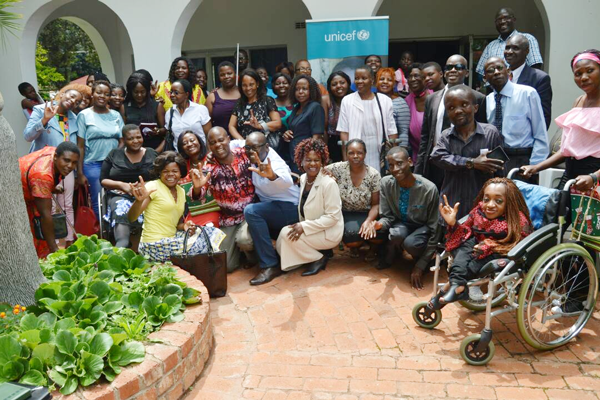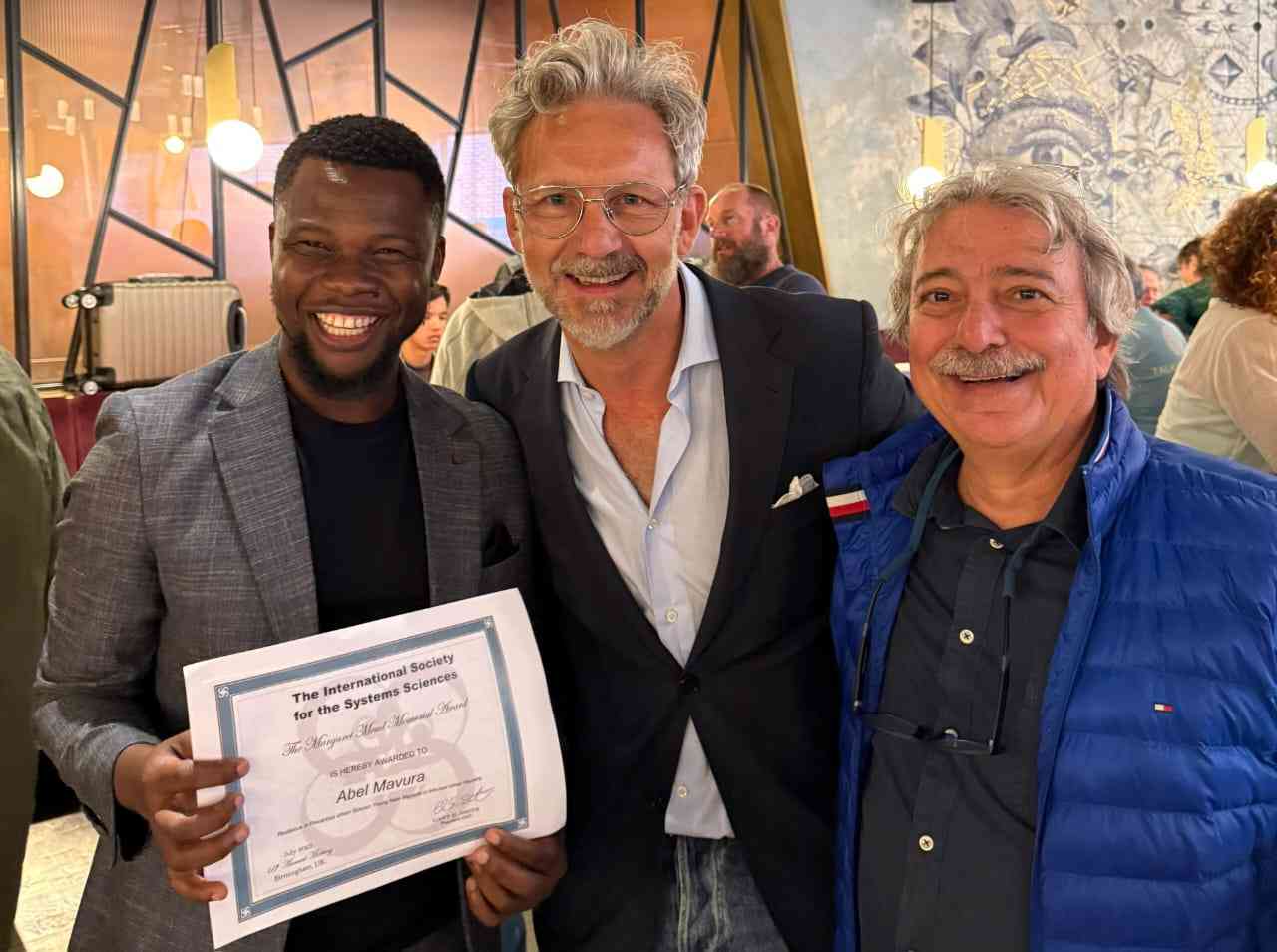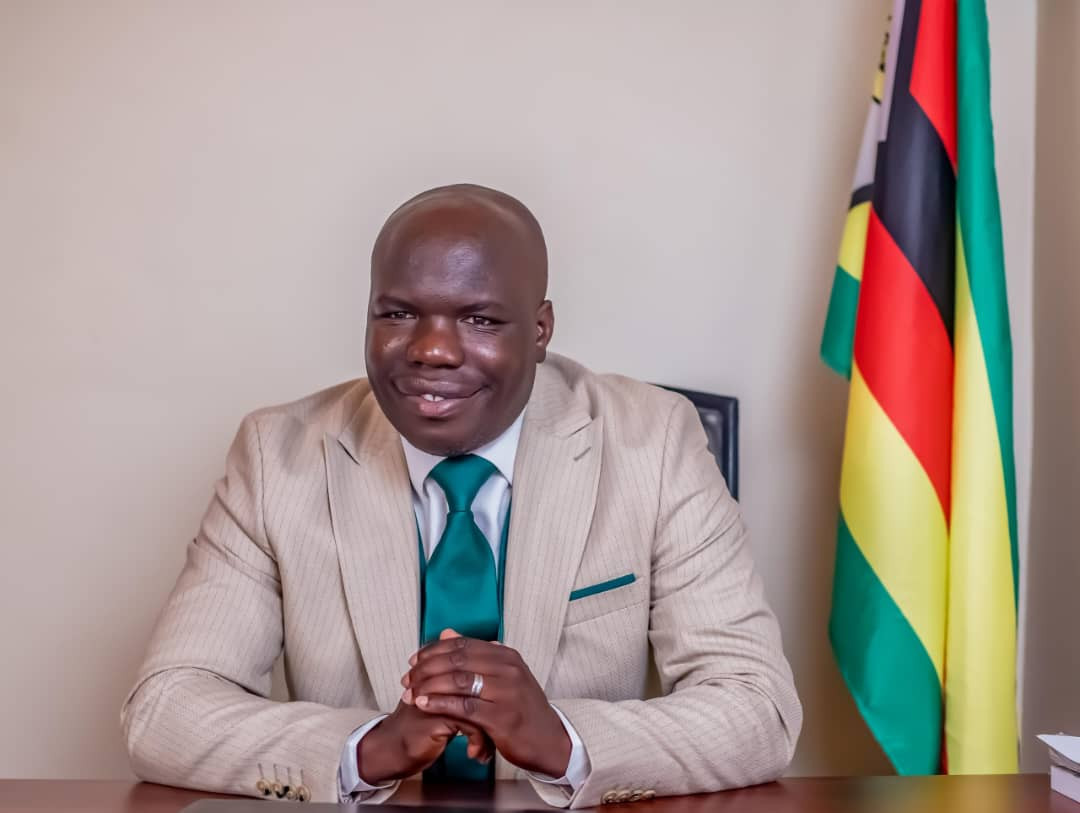

Community Builders with Takemore Mazuruse
Performing arts has its magic and very few, if any would completely ignore the lure of the stage for something completely different no matter how noble. Many remember the late superstar Oliver Mtukudzi’s assertion that he was not going to retire because arts chose him and not the other way round.
However, for reverred vocalist and dancer, Samantha Sibanda (34) who is now the founder and director of a disability rights organisation called Signs of Hope; the stage had to give way for disability rights lobbying and advocacy as she sought to play her part in ensuring social inclusion of this generally disadvantaged community, especially from an African perspective.
Born and bred in Phelandaba Bulawayo, much of Sibanda’s growing up was in Bulawayo and she reckons she joined performing arts right after High School at St Monica in Maphisa.
“My interests were in the arts and I worked with Siyaya Arts as well Sandra Ndebele’s Intombi Zomqangala and we would tour the world showcasing the Zimbabwean culture through song and dance and in some instances holding panel discussions around cultural issues.
My stint with the group saw us touring Austria in 2011 and because I was doing public relations for the group, I got involved in a panel discussion where one of the disabled panelists asked me what I was doing to advance disability rights in Zimbabwe. That was a big turning point for me,” Sibanda said.
The Signs of Hope founder and director, who is also part of the Young African Leaders initiative (YALI) and recently returned from a month-long programme with the Mandela Washington Fellowship in the United States, reckons the poser from the disabled panelist was the catalyst to the disability rights undertaking she is now championing.
“Having grown in a community where ubuntu is a virtue and being a Christian fellowshipping under the Evangelical Church of Zimbabwe resonated with the disability rights ideal that the fellow panelist instilled in me,” Sibanda said.
- Chamisa under fire over US$120K donation
- Mavhunga puts DeMbare into Chibuku quarterfinals
- Pension funds bet on Cabora Bassa oilfields
- Councils defy govt fire tender directive
Keep Reading
“In my culture, we believe in communism where we should all share and respect each other regardless of age and size. That coupled with my religious orientation helped me see disabled people as equals and shaped my disability rights inclusion vision.”
Though not sure if she can sing and dance anymore, Sibanda is very sure of the need for alignment of laws and policies so that they uphold the rights of disabled people.
“No one should have less because of who they are. I personally believe the person is the soul and not the body. We should always uphold the virtues of love for all, faith that we can attain the desired ideal of rights for all and that we must do unto others as we want done to us without losing hope of achieving disability rights actualisation,” she said.
“My early disability rights work was through the arts at what was then known as Book Café in Harare. Being an artiste I knew the value and importance of a platform in advocating for issues and I had to ride with that.
“We would hold discussions especially during early evening hours before the binging and live performances started. Our work and voices grew and we had various artists including some that were part of the open mic sessions at Book Café embracing our disability rights drive and incorporating related key messages in their art.”
In 2014, Sibanda who is the current chapter coordinator for YALI-RLC SA Zimbabwe registered Signs of Hope as a trust and that helped broaden the scope of her work.
“We then moved to register an organisation that could openly stand for disability rights in a structured way and in 2014 Signs of Hope was registered,” she said.
“The organisation does advocacy focusing on the rights for people with disabilities and the education of people on disability rights.”
Through Signs of Hope, Sibanda and her team attend and participate in all meetings and public engagements by government around bills and policy issues making make sure that laws and policies are inclusive of disabled people.
“Our meetings are growing a lot and we are having more collaborations with other like-minded organisations to push for this ideal,” she said.
“Last year we were hosting much of our disability rights discussions and events at Unicef offices in Harare, but this year we have a new venue with a view to allow grassroots people to attend our platforms and speak with one voice towards disability rights.”
To aid their advocacy and information dissemination, Signs of Hope has also started a Hope magazine which is shared on social media platforms and online to reach as many people with disability rights inclusion education.
They also running various radio programmes with a view to amplify their voices in the disability rights work. They have also partnered disabled organisations and academics who are adding their voices to the good cause.
“The magazine and the radio shows have helped amplify our voices in the fight for disability rights. What we are fighting for is that people with disabilities should have self-representation so that they are able to tell their own story and articulate their needs,” she said.
“Under our empowerment programme, we are providing scholarships for disabled children in primary school in Mbare while availing wheelchairs under the service arm of our work.”
Currently pursuing a degree in Special Education with a local university, Sibanda said she realised that rights knowledge is more important than arts training, hence her decision to set aside her arts training for talented youths ambition to focus on disability rights education.
“Yes, performing arts was my first love, but I realised disability rights education was more ideal and fulfilling because very few understand that disability issues are rights issues. Many think it’s all about handing out donations,” she said.
“Our challenge remain with regards to policies and laws and I am hoping as we continue lobbying they will be aligned so that they become more inclusive.”
Fresh with ideas from her recent tour of the US under the Mandela Washington Fellowship, Sibanda said she was hoping for the day where the disabled in Zimbabwe are fully accorded rights so that they can be employed and get education equally like all citizens.
“I appreciate the efforts that various stakeholders, including government are taking, but I believe there is lot more we can do to ensure inclusion,” she said.
“We still have special schools for the disabled that are expensive and most parents can’t afford them. My belief is that disabled students should be enrolled in a normal school as long we ensure the right facilities are in place for their welfare and comfort.”
Sibanda said the way we viewed education as a country requires a shift in comparison to countries like the US where everyone has a right to education and it is for free.
“In America, education is for free and students only pay tuition from University level. Yes we have the BEAM funding in Zimbabwe but it is limited while special schools for the disabled are expensive and beyond the reach of many,” she said.
“The US ensures that children with special needs get the requisite early intervention from as early as one month and they even teach parents sign language so that they don’t disadvantage the child. Back home, we only start the intervention at six years which is rather late for child development.”
Married to Othnell “Mangoma” Moyo a percussionist, Sibanda who is blessed with three kids said she was passionate about her disability rights work and will continue lobbying and advocating for their inclusion in all policy making and national development programmes to ensure equity.
During her month-long stay in America where she visited various centres, schools and universities, Sibanda also shot a documentary on how we should educate our children in collaboration with a girl from Nigeria and she hopes those experience will help shape and change the national approach to disability rights issues in Zimbabwe starting from individual level.











